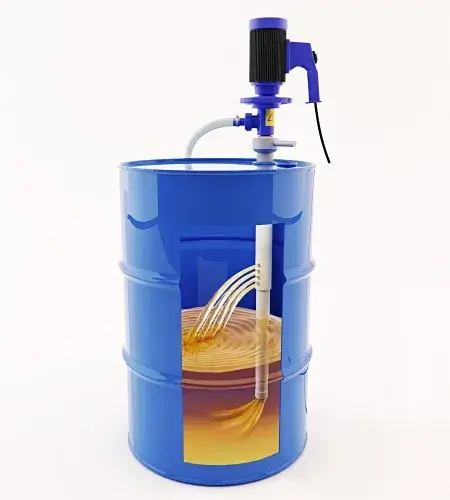In industries that deal with sensitive liquids, maintaining the integrity of the product is paramount. Whether it is food and beverage, pharmaceuticals, or chemical manufacturing, the risk of contamination can have serious consequences. One critical component in ensuring liquid integrity in hygienic processes is the use of drum pumps. These specialized devices play a crucial role in safeguarding the purity and quality of liquids during transfer and dispensing operations.
Hygienic Concerns in Liquid Handling
Hygienic processes are characterized by stringent cleanliness standards to prevent contamination, ensure product quality, and comply with regulatory requirements. In these industries, any compromise in the integrity of liquids can lead to product recalls, compromised safety, and significant financial losses. Contaminants, even in minute quantities, can cause a cascade of issues, including compromised product quality, customer dissatisfaction, and potential health hazards.

The Role of Drum Pumps
Drum pumps are designed to address the specific challenges of transferring liquids in hygienic environments. They offer several key advantages that contribute to safeguarding liquid integrity:
Material Compatibility – Drum pumps are available in a variety of materials, including stainless steel and FDA-approved plastics that are compatible with a wide range of liquids. This ensures that the pump itself will not react with the liquid and cause contamination.
Sanitary Design – Hygienic drum pumps are designed with cleanliness in mind. The bomba para tambor often feature smooth, crevice-free surfaces that are easy to clean and sterilize. Additionally, they may have self-draining capabilities to prevent the accumulation of residual liquid or contaminants.
Contamination Prevention – Drum pumps are equipped with seals and gaskets that are specifically designed to prevent leaks and contamination. This is crucial when transferring sensitive or hazardous substances.
Precision Dispensing – In many industries, precise control over the volume of liquid dispensed is essential. Drum pumps can provide accurate and repeatable dispensing, reducing the risk of over pouring or spillage.
Versatility – Drum pumps are versatile tools that can be used with various container sizes, from small drums to large tanks. This adaptability makes them suitable for a wide range of hygienic processes.
Applications in Different Industries
Food and Beverage – In the food and beverage industry, drum pumps are used to transfer ingredients like oils, syrups, and sauces. They help maintain the purity of these substances, ensuring that the final products meet stringent quality and safety standards.
Pharmaceuticals – Pharmaceutical manufacturing demands the highest levels of product purity. Drum pumps are used to transfer active pharmaceutical ingredients APIs, solvents, and other critical components while minimizing the risk of contamination.
Chemical Manufacturing – Chemical processes often involve hazardous or corrosive substances. Drum pumps are essential for safe and controlled transfer of chemicals, reducing the potential for spills or exposure.
Maintaining liquid integrity in hygienic processes is a non-negotiable requirement for industries where product quality and safety are paramount. Drum pumps play a vital role in achieving this objective by providing a sanitary, contamination-free means of transferring liquids. Their design, materials, and precision make them indispensable tools in industries ranging from food and pharmaceuticals to cosmetics and chemicals. As technology continues to advance, drum pumps are likely to evolve further to meet the ever-increasing demands for liquid integrity in hygienic processes, ultimately contributing to safer, and higher-quality products for consumers.